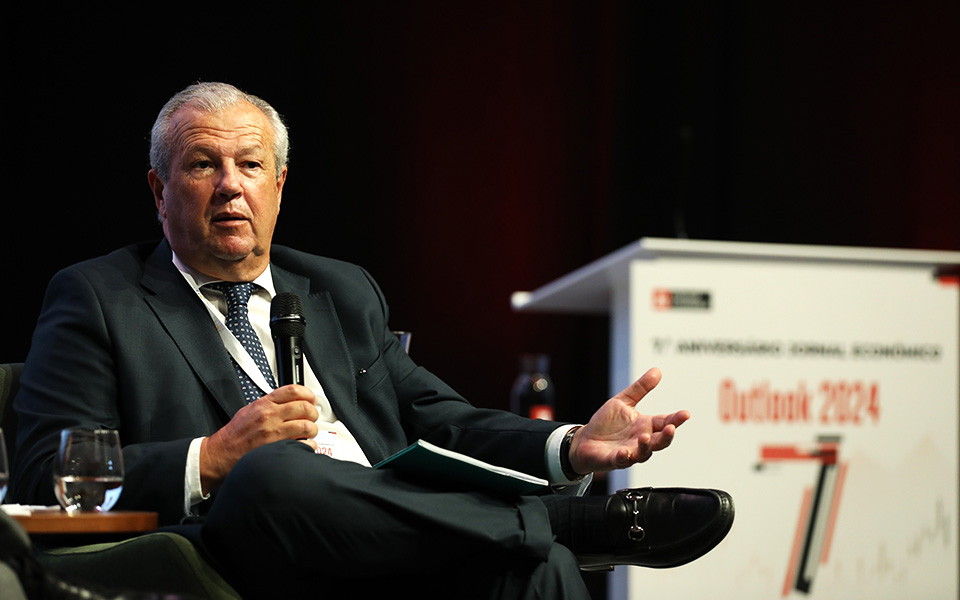Regarding the possibility of the State retaining the majority of TAP's capital, he admits that it may be difficult for a private party to accept this circumstance, according to the interview with Antena 1/Negócios.
“It is necessary to approve the state budget for 2025,” says the president of the Portuguese Tourism Federation, in an interview with Conversa Capital – Antena 1 / Jornal de Negócios.
Because, as Francisco Calheiros says, “disapproval means instability, which is bad for foreign investment and bad for everything.”
The CTP president even says that “it is the government that has to try to make the budget sustainable,” but “everyone has to have common sense.”
Francisco Calheiros considers that living at twelve or going to the elections would be “terrible.”
The CTP says that the package of measures for the sector will soon be finalised and delivered to the government, but Francisco Calheiros says that the Minister of Finance, during the social consultation meeting, asked for a reduction in public spending so that it would be possible to reduce the tax burden.
The government has offered the Portuguese Tourism Confederation (CTP) an increase in the minimum wage to 860 euros. “The government has already mentioned some at 870 euros and others at 860 euros.
“With us he said 860 euros,” he said in an interview with Antena 1 and Jornal de Negocios. He points out that Francisco Calheiros does not commit to this increase without knowing the counterparts of the executive, especially at the financial level and without talking to the members because not everyone, especially the restaurant sector, has the capacity to face these increases.
In this interview, Francisco Calheiros stated that the privatization of TAP is a point related to the cash transfer program. “We are worried,” said the head of the tourism union.
Francisco Calheiros stresses that the privatization of TAP “is one of the points that worries us a lot” because of the air dependence that Portugal has, as a peripheral country, and the need to maintain the hub and maintain the North American market that was growing.
Regarding the possibility of the state retaining a majority of TAP's capital, he admits that it may be difficult for a private party to accept this circumstance.
Regarding the Minister of Infrastructure's involvement in the TAP privatization process, he described the criticism directed at him as “foam”, and said that he is “a very firm person with very clear ideas”, referring to Miguel Pinto Luz.
Regarding the construction of the new airport, the CTP president asks for a general schedule of the steps to be followed and hopes that the railway line, that is, the high-speed connection to Madrid, will not be an “airport 2” because, he says, “it would be an alternative to be able to do without some flights and free up Lisbon airport.”
Regarding the tourism sector, Francisco Calheiros maintains initial expectations that the tourism year will reach new records and exceed the results of 2023 with a growth of between 1% and 3% in stays.
Francisco Calheiros considers that the Portuguese market is still crucial for tourism, even saying that “it is not the Portuguese who are decreasing, it is the others (the foreign market) who are growing”, but he still considers the prices charged to be sufficient and rejects the need to reduce.
The president of the Confederation rejects the existence of mass tourism. “It is a bit fanciful to say that there are too many tourists” and it is unfair. In this sense, he announced that “the CTP will launch a campaign to demystify tourism”.
Regarding tourism, Francisco Calheiros believes that what is necessary is to promote decentralization, which is happening and gives as an example the Korean market, which is currently the main tourist in Fatima.
The CTP president also disagrees with the double increase in Lisbon's tourism tax, even admitting that it is a deterrent to tourism.
“From 2 euros to 4 euros is a lot, it’s 80 million euros,” he said. Instead of charging a fee, Francisco Calheiros says the rooms receive part of the tourist value-added tax.

“Wannabe internet buff. Future teen idol. Hardcore zombie guru. Gamer. Avid creator. Entrepreneur. Bacon ninja.”

